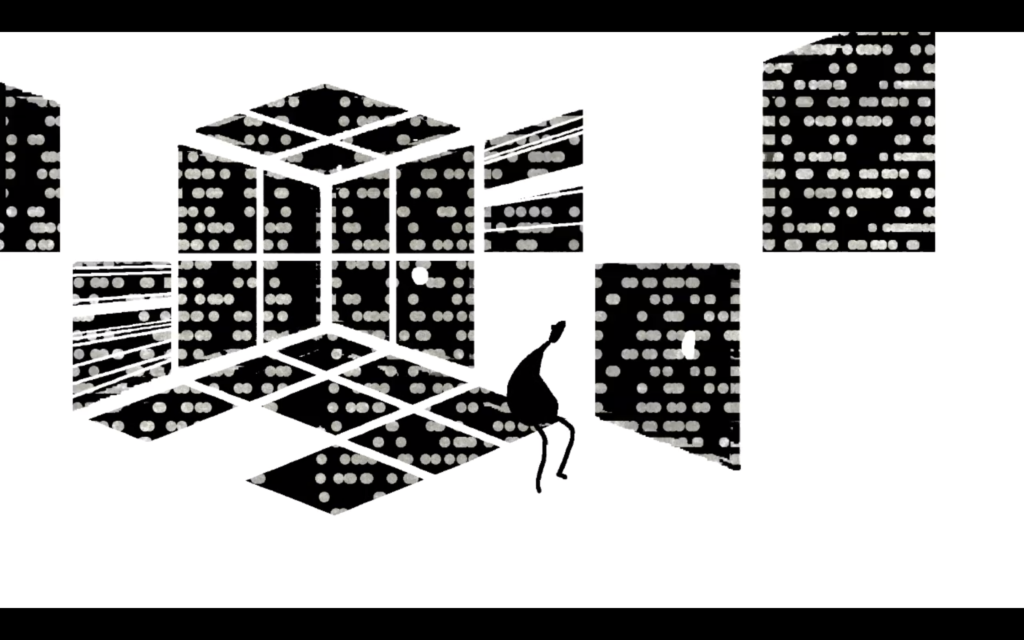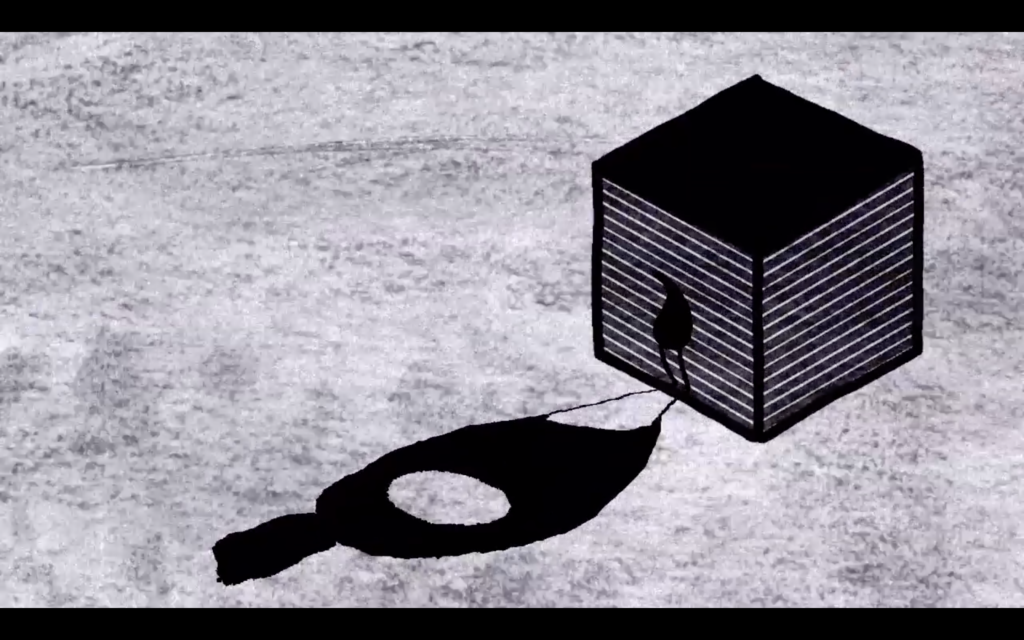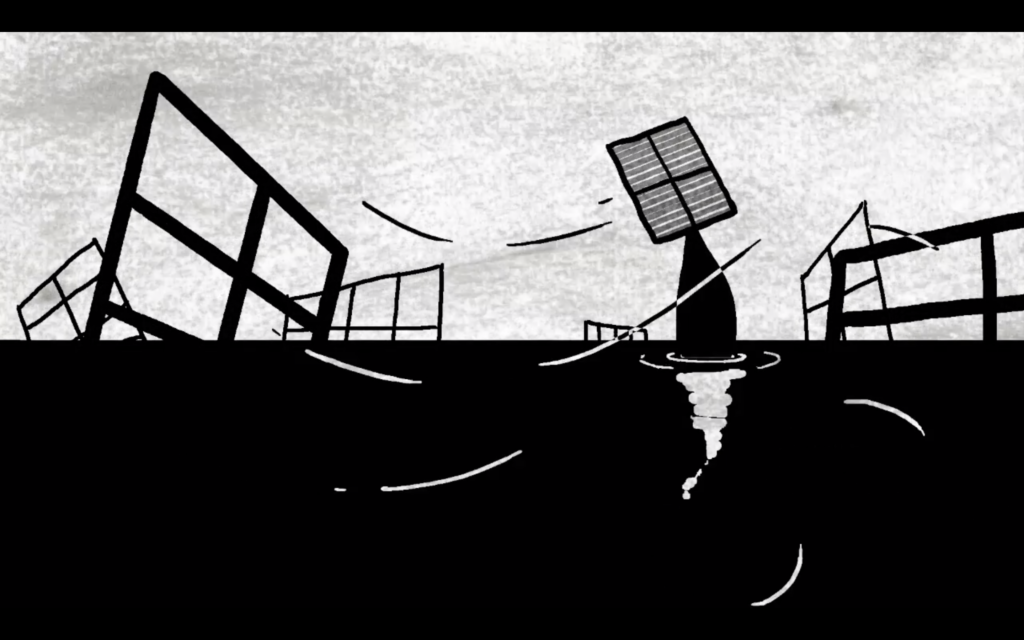
In 2008, the launch of SpaceX’s Falcon 1 rocket kicked off a renewed public curiosity in human space exploration. The term NewSpace has come to represent the growing amount of entrepreneurial space companies who advocate for the privatization of access to outer space. Their uniting end goal is to make humanity multi-planetary in hopes of saving our species in the advent of ecological collapse, nuclear annihilation, or the inevitable death of our sun. David Valentine, associate professor in the Department of Anthropology at the University of Minnesota, is a linguistic anthropologist interested in communities that form around a desired collective future. His current research considers the growing space settlement community and how their ambition for a future in space, opens up new points of difference for rethinking the category of the human through non-terrestrial sites.
***
When did you first become interested in communities endeavouring towards a future?
My dissertation research and first book (Imagining Transgender) took on the emergence of the category of transgender. As a linguistic anthropologist, I was interested in how this new neologism emerged as a counterculture—an oppositional frame to resist medicalization. I argue, what transgender does, beyond what it does for trans people is absorb the gender variant that had been broadly associated with male homosexuality for 150 years. It resolves a tension around persons and establishes a distinction between gender and sexuality. I became curious of the way this possibility transformed actions in the future. I paid a lot of attention to my informants who were thinking through the utopian possibilities of a world where gender didn’t matter.
Following this line of the future, I started teaching in the early 2000s around the time SpaceX was founded. I discovered the space settlement movement, a phenomenon beginning in the 60s especially around the US Apollo Program. I started going to space conferences thinking I would do a workplace ethnography—get into SpaceX or another entrepreneurial space company—but when I attended I came to realize the conferences were actually the site of the working out of futurity.
What is the space conference community like?
I was surprised because I was only expecting to find straight, white, old men. They are definitely the majority but there are a lot of young people, a surprising number of women and POC. There were also remarkable similarities to the transgender community in that each considers themselves outsiders. Both feel like they constantly have to defend their presence. When I interviewed people I would say, “Tell me about your experience with trans activism” and with the space project I would say, “Tell me about your experience with space settlement activism”. In both cases everyone, with almost no exceptions, began with childhood. It’s an origin identity narrative: how did I become this kind of outsider person that my family doesn’t understand and why am I on this lifelong quest to do this thing that seems impossible to most?

Many critiques of the space industry deem it a colonialist project. Can you speak on your use of the word settlement in reframing the aims of this community?
Colonialism was my original interest. Day one of my research people said, “Yeah, that’s what we do”. There’s nothing to find out there. The community isn’t trying to hide it. They know that colonialism is a problem but settler colonialism hasn’t yet entered their thinking. There’s great denial about—as is true of most of American society—the fact that we live on settled land. That’s where I began this project but not where I want to end.
What does it mean to settle Mars? We know that to settle Mars we must make Earth nature there. You can’t make it one time. You keep on making it and make sure that Mars nature stays outside and Earth nature stays inside. You can’t settle it down because it has to be in relation to Mars’s nature. It needs to respond to Mars’s gravity and atmosphere. It keeps out none of the radiation, solar or cosmic, that bombards us. Mars dirt is almost uniformly interlaced with perchlorate salts, rare on Earth and toxic to humans. Mars can be imagined along the trajectory of the European colonization of North America and the genocide of native peoples but it cannot be colonized in the same way. The only way you could settle Mars is to pay attention to what indigenous people say about being unsettled because you will always be unsettled in relation to Mars’s nature. You must account for the multiplicity of identities, human/nonhuman, Martian/terrestrial, etc. because if there’s any interaction that is unexpected or unaccounted for everybody dies.
Rarely is our cultural imagination of nature inclusive of other planets. Is the community expanding our definition of nature?
Nature is what’s in question when you leave. Whether you’re on the International space station, the surface of Mars or the interior of Gerard O’Neill’s rotating cylinder. What nature is, would be configured radically different. By looking to the interior surface of Island 3, O’Neill’s most evolved form of the space colony, we can think about the different ways in which not just things like architecture or the organization of bodies in space would need to be different but also the ways the kinds of metaphors we have for what is significant: what is home, what is central, what is peripheral and so on would need to shift. On Earth when talking about the ground for example, we talk about “being grounded” or “getting down to the ground”, grounded means rooted. On Island 3, the ground would be about 3 meters of rock and beyond that space. Would it make sense to talk about being grounded on Island 3? If you create an O’Neillian cylinder with forests and rivers inside, what would nature look like? How would you not just conceive it but how would plants, trees, humans and other animals thrive and be able to live in a place where you don’t have mass producing gravity but rotationally produced centrifugal force?
My informants recognize the technical requirements needed for humans to be able to persist, but I don’t think as much as they need to. I never critique my them for being too imaginative, which is often the case. For instance, a recent article in the Paris Review said the argument for space settlement is fantasy—this is just imagination run riot. I don’t think they’re too imaginative, it’s that they’re not imaginative enough. If you’re planning to do this for all humankind, you need to be much more imaginative about the kinds of connections and intersections you see.

Does outer space, as an imaginative projective site, allow for a different kind political conversation about the future?
Within the space settlement community there is enormous political variety—everything from right libertarians, climate change deniers, angry men (many of them), marxists and anarchists working together. There is no there there yet. I don’t think anyone is a utopian or thinks space will be a utopia. I think instead they are techno-optimists. Everyone knows space will be a hard place to live. I think the reason people with dramatically different politics can work together on these issues is precisely because they can defer an argument about who’s right because they both agree the path forward is to go to space. They defer a terrestrial argument in advance of technical dreams coming to fruition, which will allow nature to decide who’s right.
My argument is that the forms of politics, exchange or collectivity that we have on Earth will not work in space. You cannot have something called capitalism, socialism, or anarchy in space if you want to live. For instance, take haircuts. For a haircut, you need to think about labor, heavy metals, race, style, gender all within one example. If you’re going to cut hair, who’s going to cut the hair? If you want a genetically diverse crew, which everyone says they want, who is going to cut it? Will you have someone who is trained to cut black hair as well as white hair? Because we know that black hair is an important thing. Hair contains a high proportion of heavy metals because hair is one of the ways the body gets rid of things like nickel. What do you do with hair that falls on the floor? What space do we dedicate to hair and what do we do with the hair once it’s cut? Hair is useful biomass but it has a high content of heavy metal. How do we enter hair back into our ecosystem? And then, if we’re bringing a hairdresser what else are they going to do? Because one person is a lot of biomass just to cut hair, so what else will they do and how much can we demand of them? What kind of labor laws do we need so we don’t exploit them? We don’t want to exploit them because if our hairdresser gets pissed off at us they can kill us all off very easily.
With that in mind, what would this community’s relationship to death look like?
Death is interesting. Obviously people talk about risk. What is the added risk of living in space to an average human life? Like the increased chances of cancer over a lifetime, or dying on the launch pad. But then less so in terms of what happens once we get there. I think people do not talk nearly as much as I had expected about what it will be like once we reach those places.
You’re near the end of this ambitious 10 year project, or at least preparing to publish a major work on the subject. How the project changed your or effected your relationship to the future?
The space project is about the white utopian imaginary I grew up with as a young South African and the kind of techno-solutionism I embraced as a young white boy. It challenges me to think through other sorts of frames: feminism, queer theory, black and indigenous studies about my own take on the future and how the individualist, techno-optimist view that I gravitate towards as a white man is consistently undermined by what I learn and come to understand about collectivity, depth of history and collaboration.
But I’d say the biggest take away for me is that I now experience living on the planet. I feel gravity nowadays. It’s not just how my body moves, I’m like “Oh that’s one G. This is the effect of this planet cutting a curve through space time”. When I sit at my computer and look at my hands, I think, “Wow 17 pounds per square inch of atmospheric pressure that’s 78% nitrogen and 21% of oxygen keeping my body together.” I have a sense of things as a temporary arrangement. It hasn’t always been and won’t always be this way and the spatial-temporal experience I increasingly have of being in a particular moment during the history of this planet, is incredibly unique and amazing but that it’s not natural in the sense that these conditions are not extendable everywhere. That’s probably the biggest personal outcome or manifestation of this project for me, to recognize that I in fact live on a planet, not just as an intellectual exercise but as a phenomenological one.